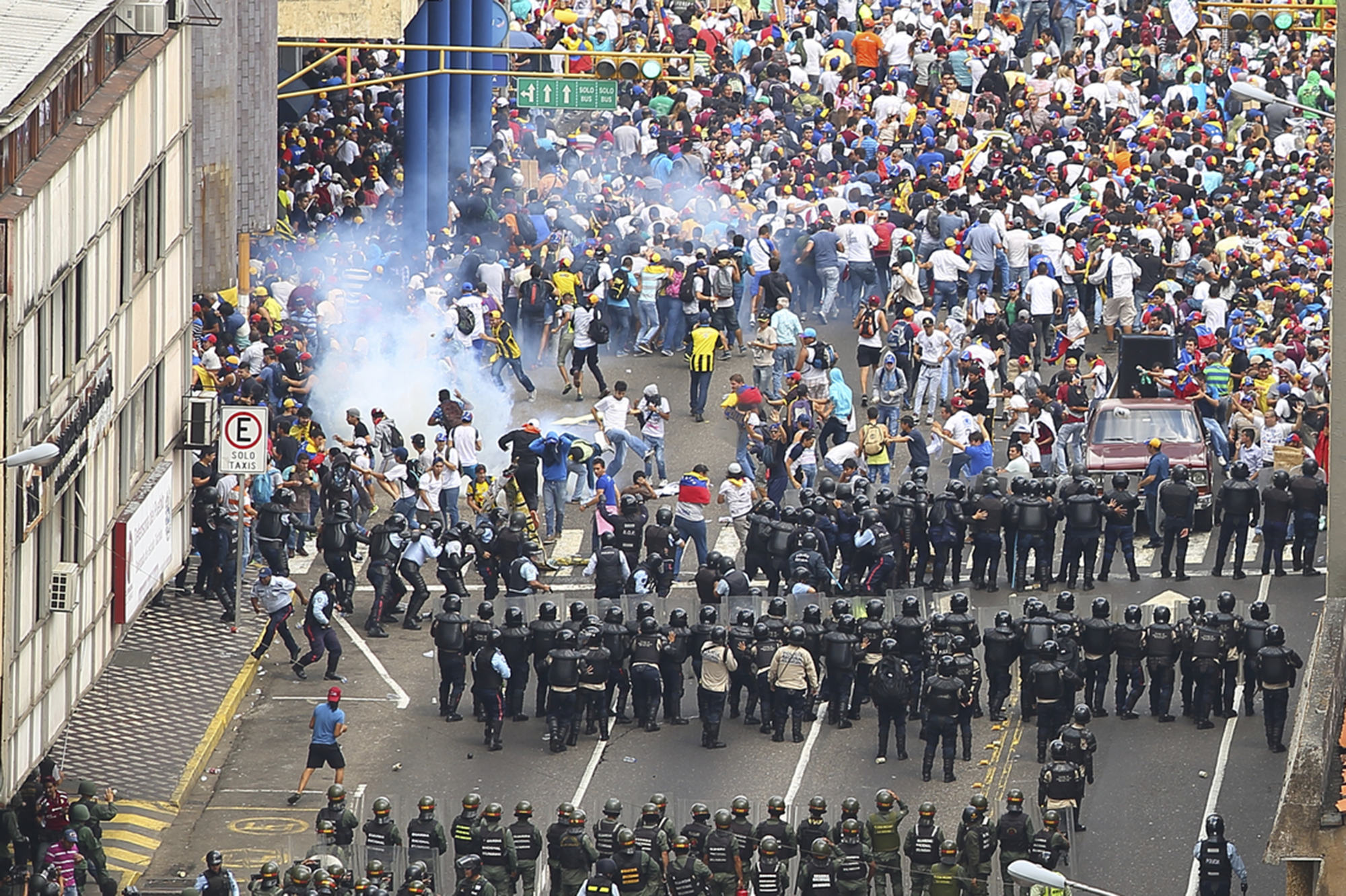Subscripe to be the first to know about our updates!

How Did Venezuela’s Crisis Get So Bad?
Siobhán O’Grady
Venezuela has endured years of political chaos, and 2019 looks like it will bring even more unrest.
On Wednesday, opposition lawmaker Juan Guaido declared himself the country’s interim president. He was quickly recognized by a number of foreign countries, including the United States, Canada and several South American nations. But President Nicolas Maduro is not backing down.
So how exactly did Venezuela get to this point?
In March 2013, longtime Venezuelan leader Hugo Chavez died of cancer. Maduro, his handpicked successor, took over after a narrow election win the following month. Maduro echoed the rhetoric of his predecessor and “pledged to complete the socialist transformation of this oil-rich nation that began under the man he served loyally for 20 years,” as The Washington Post reported at the time.
But Maduro’s policies flopped, and the country soon plunged into recession. The cost of basic goods soared, and food, medicine and other necessities were soon out of reach for many Venezuelans. The U.S. mission to the United Nations tweeted at the time that the “so-called ‘election’ in Venezuela is an insult to democracy.”
As anger with Maduro grew, critics say, he consolidated his power and turned further toward authoritarianism.
When the opposition took control of the National Assembly in 2015, he began attempts to take power away from the legislature. In March 2017, the country’s Supreme Court announced it had the right to strip all powers from the National Assembly. That, paired with frustrations over the deepening economic crisis, propelled tens of thousands of Venezuelans into the streets. Mass protests and clashes with police went on for weeks, and Maduro’s rule looked shaky.
The Supreme Court eventually backed down on its efforts to neuter the National Assembly, but Maduro later announced plans to rewrite Venezuela’s constitution.
In May 2017, despite widespread condemnation, Maduro announced that he would create a new “constituent assembly” to rewrite the country’s constitution. The Washington Post reported at the time that critics warned the vote would create “a puppet congress with vast powers to rewrite the constitution and supplant the opposition-controlled National Assembly, leaving all branches of government under firm socialist control.”
Ahead of the July vote, the opposition organized an unofficial referendum in which 98 percent of the 7 million people who took part voted against the creation of the new legislative body. But the loyalist constituent assembly was established anyway, and the body declared itself the rightful legislature – something the National Assembly still contests.
Maduro was elected to a new six-year term in May, but the vote was boycotted by the opposition – turnout was the lowest of any presidential election since the 1940s – and was widely seen as a sham.
Today, the country’s economic and political crisis has morphed into a humanitarian disaster. Some 3 million Venezuelans have fled the country, creating refugee crises in several neighboring countries. Medical services have all but collapsed, and food shortages are endemic: In a May report, Human Rights Watch said most Venezuelans go to bed hungry. In 2017, the report said, Venezuela’s health minister released data showing that “maternal mortality increased 65 percent, infant mortality 30 percent, and malaria cases 76 percent.” The minister was fired shortly thereafter.
What will happen next remains unclear. Maduro has withstood years of political opposition, angry protests and societal collapse. Guaidó’s declaration could be just another crisis he manages to weather.
If he does not, Guaido has already laid out a road map for Venezuela: In a January commentary for The Post, Guaido said his potential duties as an interim president would be clear: After forming a transitional government, the next step would be restore the rule of law and then “call for free elections so all Venezuelans can decide their future.”
Source; Washington Post